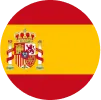Providencia and Santa Catalina, 2025. At the farm of the Secretariat of Agriculture and Fisheries in Providencia and Santa Catalina, the Knowledge Exchange Day with Raizal farmers was held, an event that marked a decisive step towards sustainability, food security, and agricultural diversification within the framework of Sentence T-333.
The activity was organized by AGROSAVIA, through its Motilonia and Caribia Research Centers, with the support of the Secretariat of Agriculture and Fisheries of the islands.
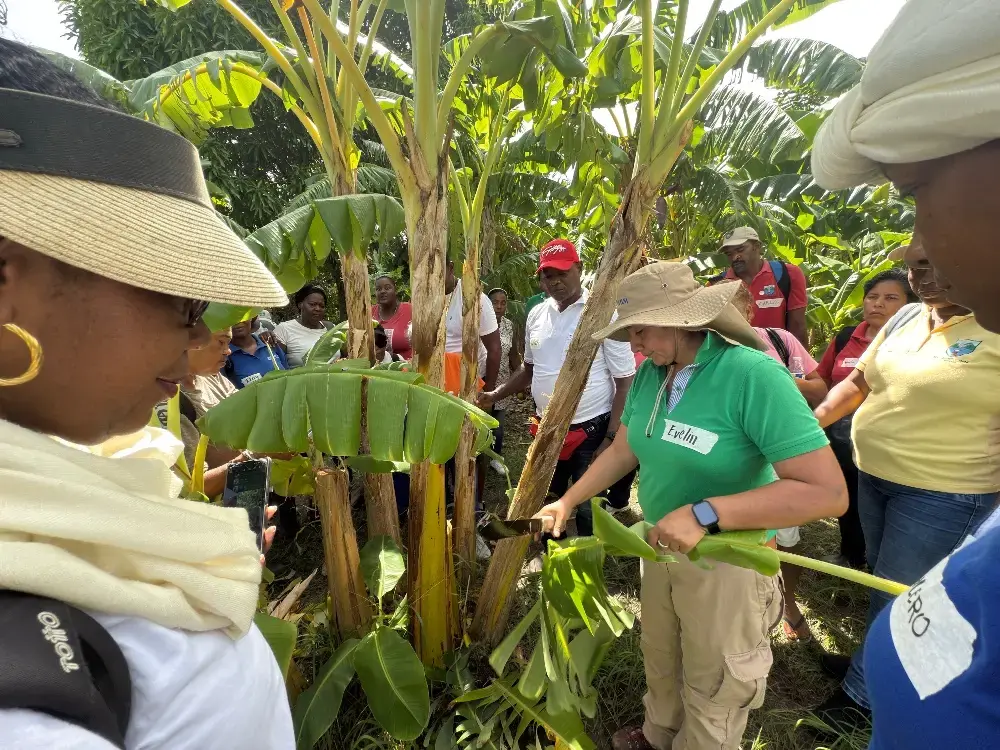
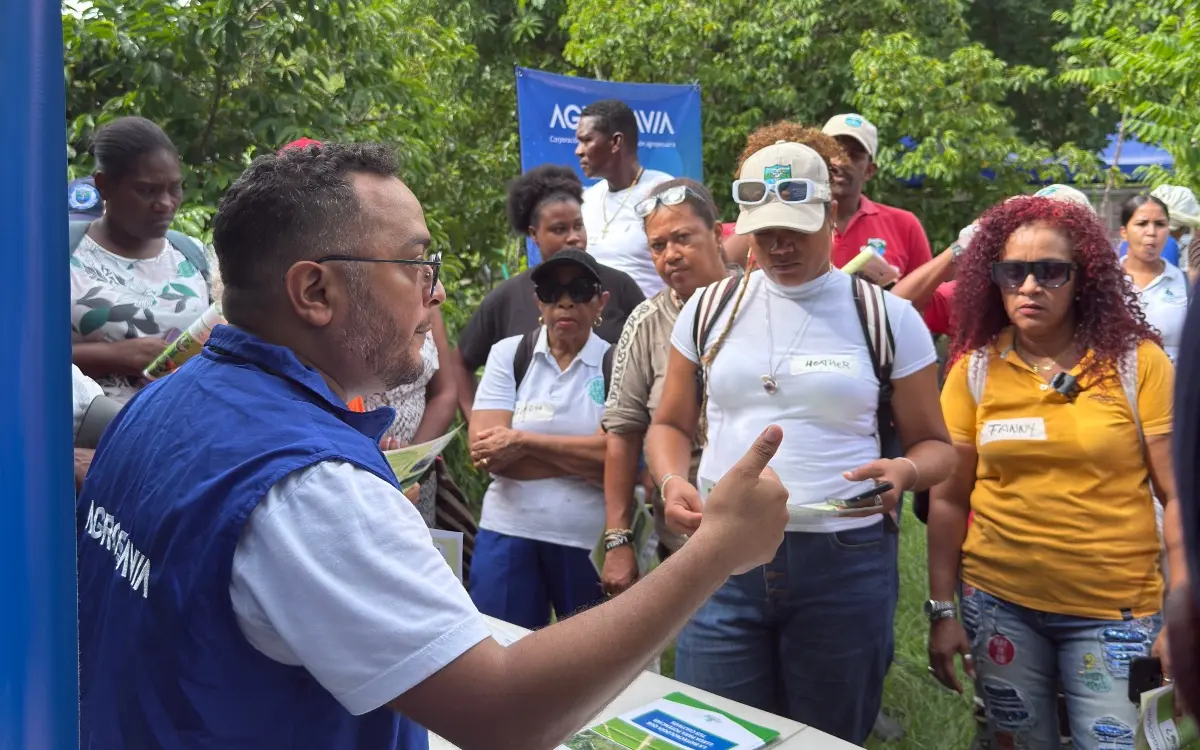
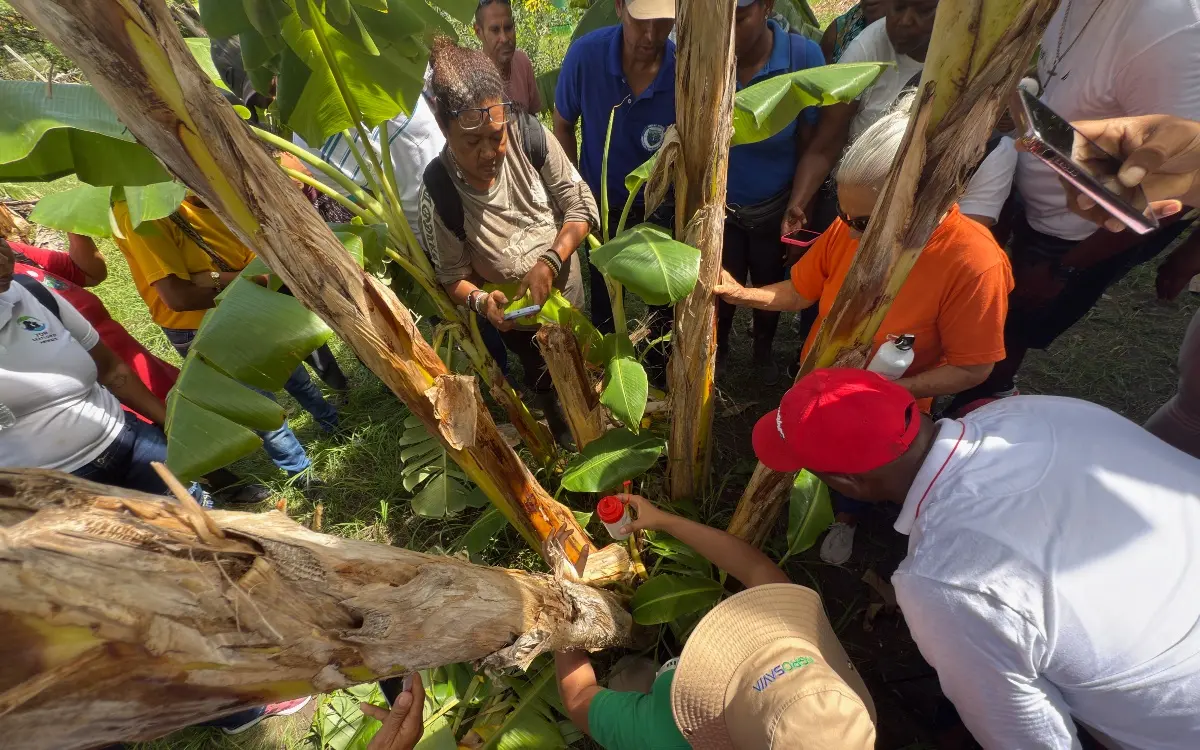
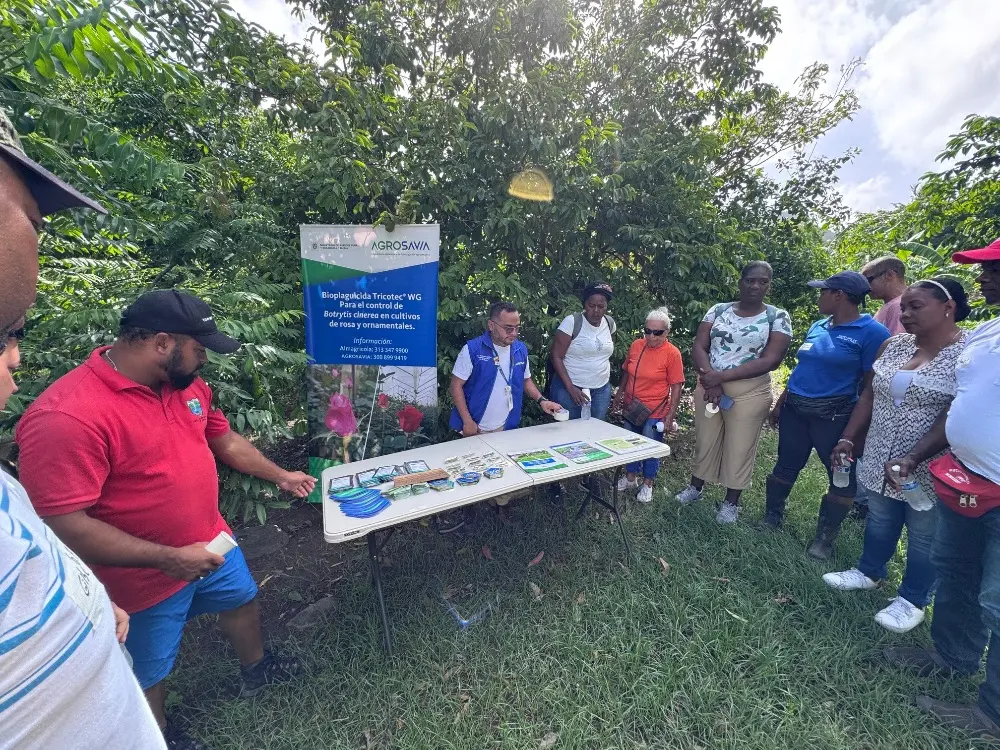
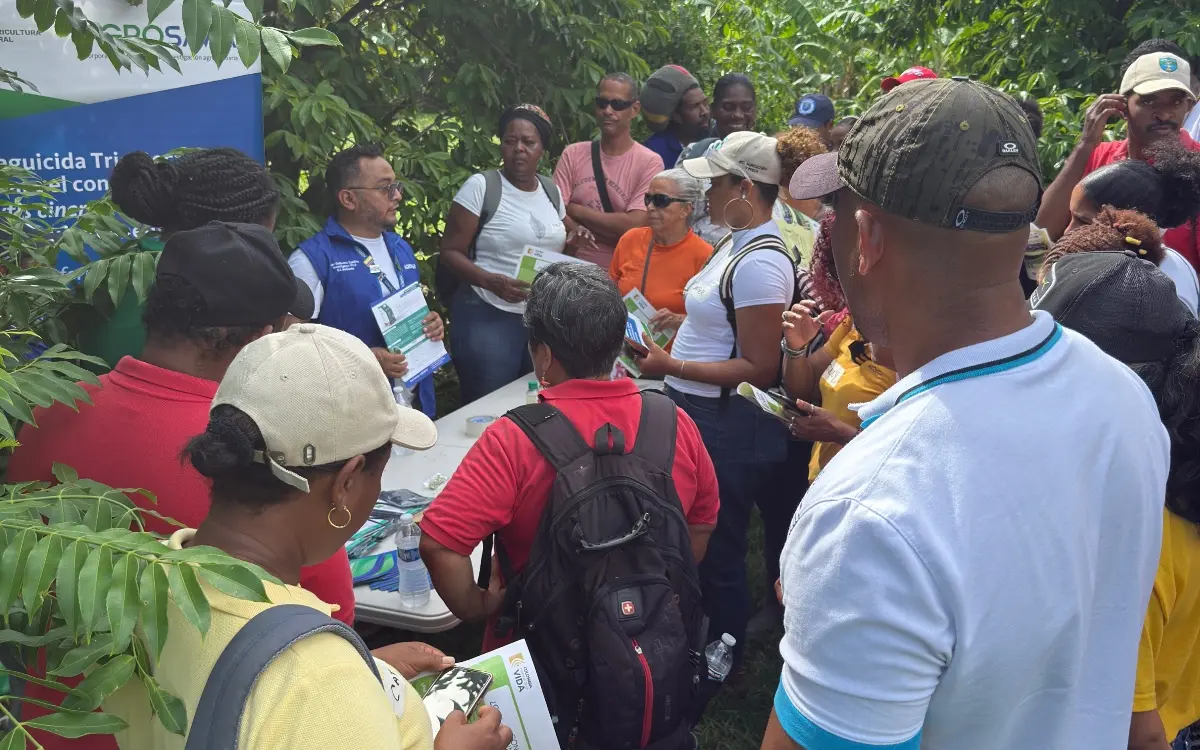
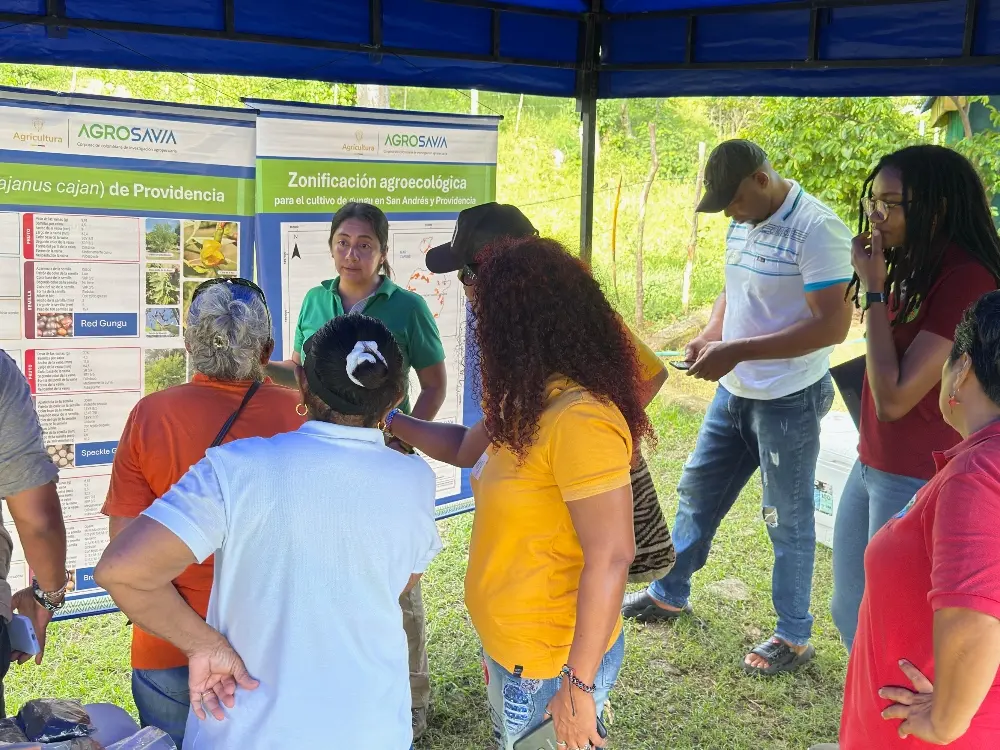
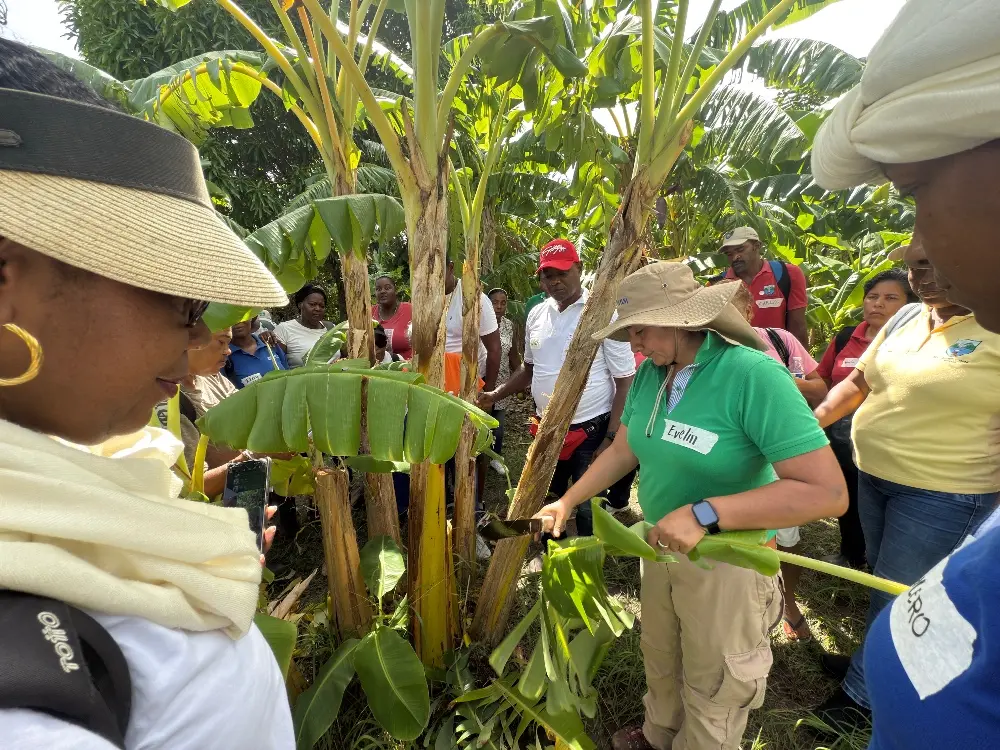
Seed rescue and agricultural diversification
One of the most significant milestones of the day was the return of three varieties of pigeon pea (guandúl) seeds to the territory, an action that strengthens food sovereignty and preserves native species that are fundamental to the Raizal agricultural culture.
Within the framework of the National Seed Plan and the Ethnic Route strategy, derived from the agreements protocolized in Sentence T-333, seedbeds of white pigeon pea selected by the community for its high demand and consumption were established. In addition, “topito tropical” chili and pear guava were planted, promoting agricultural diversification and offering new productive alternatives for the islands.
Innovation with bio-inputs
In the innovation component, farmers received practical training in the use of bio-inputs through AGROSAVIA’s “Consumo Bioinsumo” [Consume Bio-input] campaign.
Bioproducts such as Tricotec and Triestimul were supplied, offering biological solutions to improve crop productivity ecologically and sustainably.
With the support of specialists, pest management workshops were also held, with emphasis on the control of black sigatoka and weevil in banana, critical issues for production in the island territory.
Seed production traceability
In compliance with the agreements established in Sentence T-333, AGROSAVIA held the workshop “Traceability in seed production for small farmers” at the Municipal Library of Providencia and Santa Catalina Islands.
During this session, local producers and technical staff from the Secretariat of Agriculture and Fisheries received guidance from Evelin Delgado, Research Support Professional from the Motilonia Research Center, who explained, in simple terms, the step-by-step process of seed traceability, using as an example the production of the sweet potato variety Agrosavia Aurora, cultivated in the experimental plot established in Santa Catalina.
Juan Guillermo Cubillos, Ph.D. Researcher at AGROSAVIA’s Motilonia Research Center, highlighted that “with this workshop, we close the training cycle for the island producers on the topics they themselves prioritized within the framework of the National Seed Plan and the Ethnic Route strategy. We hope that in 2026 we can continue with the implementation of this project, whose purpose is to establish the local seed bank of Providencia and Santa Catalina.”
Sustainable agriculture with Raizal identity
These training and innovation spaces are an example of resilience, unity, and community commitment, which allows advancing towards sustainable agriculture adapted to island conditions.
Thanks to the articulate work between AGROSAVIA, its research centers, the Secretariat of Agriculture and Fisheries, and the Raizal community, the islands are moving towards an agricultural model that honors traditions, promotes innovation, and strengthens food security.
Through these actions, AGROSAVIA reaffirms its commitment to local agricultural development and to the strengthening of ethnic communities, under a comprehensive approach to sustainability, resilience, and competitiveness for the Colombian agricultural sector.
- More information here:
- Nicolás Hartmann Robledo
- Press and Digital Dissemination Leader
- Headquarters
- Communications, Identity and Corporate Relations Advisory Office
- nrobledo@agrosavia.co
- AGROSAVIA

